Eva S. Moskowitz, left, founder of Success Academy Charter Schools, led a rally Tuesday in Albany, while Mayor Bill de Blasio, who differs with her, led a separate demonstration. | Credit Nathaniel Brooks for The New York Times
It is not a battle of the Titans, but a war waged on the public. The fight for privatization is on and the enemy is “the people.” Today it is difficult to discern who is with “us” and who works against us. The lines are blurred. The boundaries dim. There is not one side or another. There are players and pawns; and pupils in want of an education. Parents too join in the conversation. But none of these will determine what occurs. That is left up to …whom? We will see. In the meantime, let us look at the situation.
We have the Encourager of Equality, New York Mayor DeBlasio. He stands for and with the American people. Public education is the charge. Charter School proliferation, the challenge. Presumably, there are other defenders, but as noted in this war, it is all a bit hazy. We have detractors, reactors, and of course, the actors – Governor Cuomo, plays a prominent role, but what is it?
The battle, while ostensibly local, is not. It occurs in hundreds of cities. We see what happens when privatization moves in, and it is not pretty. The path to true progress is blocked. Students are selectively “chosen.” Good test scores will get you in. A tough skin will keep you alive. There is scolding, and emboldening. For students and the minimally-trained teachers the going can be rough. The routine is understood. It’s rigor and rigid. It is geared for richness…Charter campaigns are backed by the millions, the millionaires who staked a claim! The evidence is there. Just listen. “Success Academy Charter School founder, Eva Moskowitz stated there is a problem. In the battle for privation; if the actual agenda is revealed it could “scare off financial contributors anxious about the viability of charters.” And won’t that be a shame. What would happen if the people knew their support was bought only to be sold again. There is a history…Moskowitz is well-known not for her magnanimity, but for her “hostile takeovers.” And so….
De Blasio and Operator of Charter School Empire Do Battle
She was a darling of Mayor Michael R. Bloomberg’s administration, given free space to expand her charter schools from a single one in Harlem into a network larger than many New York State school districts. Along the way, her Success Academy empire became a beacon of the country’s charter school movement, its seats coveted by thousands of families as chronicled in the film “Waiting for ‘Superman. ”
But eight years into her crusade, Eva S. Moskowitz is locked in combat with a new mayor, Bill de Blasio, who repeatedly singled her out on the campaign trail as the embodiment of what he saw was wrong in schooling, and who last week followed his word with deed, canceling plans for three of her schools in New York City while leaving virtually all other charter proposals untouched.
Never was their battle more clear than in Albany on Tuesday, where each took part in simultaneous rallies — which each insisted had nothing to do with the other, but which felt like a duel nonetheless.
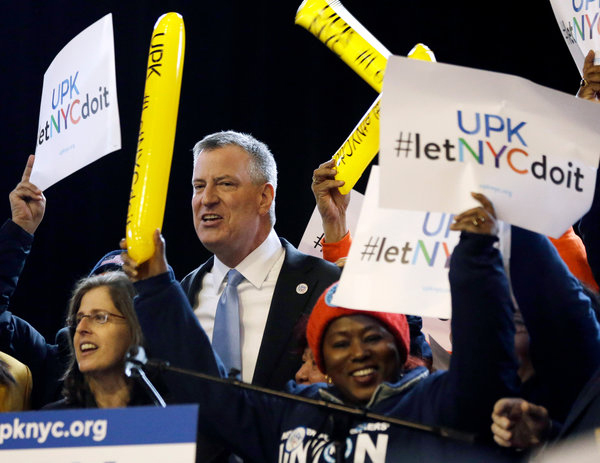
Mayor Bill de Blasio was also in Albany on Tuesday to press for his plan for universal prekindergarten. | Credit Mike Groll/Associated Press
Most dramatically, Gov. Andrew M. Cuomo lent his backing to the charter school rally, standing before cheering crowds outside the State Capitol and saying he would defend charter schools, praising Ms. Moskowitz and implicitly attacking the mayor. “We are here today to tell you that we stand with you,” Mr. Cuomo said. “You are not alone. We will save charter schools.”
The rallies, which took place on a Lobby Day, one of the days when unions, businesses and other groups descend on Albany to push their agenda for the year, highlighted not only the rivalry between the mayor and Ms. Moskowitz, but also his deepening disagreements with the governor on education.
Mr. Cuomo was aligned with Mr. Bloomberg on most school issues and in his budget has offered to help charter schools win more state money. While Mayor de Blasio wants a tax on high-earning city residents to pay for expanded preschool and after-school programs, the focus of his rally on Tuesday, the governor has proposed to pay for preschool without a tax, a plan the mayor calls unreliable and inadequate.
The mayor and governor talked privately after the rallies, a meeting Mr. de Blasio later described as cordial but achieving no breakthroughs. He also said he did not think the governor’s appearance at the charter rally was tantamount to a protest of the mayor.
“We had a big strong rally here of folks who believe in our pre-K and after-school plan who then went out and lobbied legislators for the rest of the day,” he said, referring to his own event. “I’m very comfortable that we took another step forward.”
While she did not speak at the charter rally, the star was clearly Ms. Moskowitz, well-financed and voluble, who once compared a space fight in a Harlem school to a “Middle East war.”

Sixth-grade students at Success Academy Middle School in Harlem, one of the schools operated by Ms. Moskowitz. | Credit Michael Appleton for The New York Times
In the crowd, Ms. Moskowitz, who turned 50 on Tuesday, mingled with thousands of people from over 100 charters around the state. Many were from her own 22 schools, which she let out for the day so the pupils and their parents could be bused to the capital. The advocacy group that organized the rally, Families for Excellent Schools, recently started a multimillion-dollar television ad campaign praising charter schools and calling on the mayor not to hold them back.
Ms. Moskowitz’s history of aggressive tactics has led several other charter operators to keep a wide berth. More than 30 charter school leaders, still hoping for better relations with the new mayor, boycotted the rally.
“Is that how you start out the conversation, with a punch in the face?” said one of those leaders, Steve Barr, founder of Green Dot Public Schools. “I think that comes later, if he’s an unwilling partner.”
In his campaign last year, Mr. de Blasio took aim at charter schools, saying they had a “destructive impact” on traditional schools. He has promised to charge rent to well-financed charter schools, which are privately run but publicly financed, for using public school buildings, and he has placed a moratorium on future requests for classroom space inside traditional district schools.
But the face he repeatedly linked to his criticism of Mr. Bloomberg’s charter school policies was one in particular. “And another thing that has to change starting January is that Eva Moskowitz cannot continue to have the run of the place,” Mr. de Blasio said to thundering applause at a candidates’ forum last year. “Unfortunately, in my case, I have had a lot of contact with Eva over the years and this is documented. She was giving the orders and chancellors were bowing down, and agreed. That’s not acceptable.”
Ms. Moskowitz said she feared her clash with the mayor could scare off financial contributors anxious about the viability of charters. But she was unapologetic about her defense of her schools and attempts to keep adding more of them.
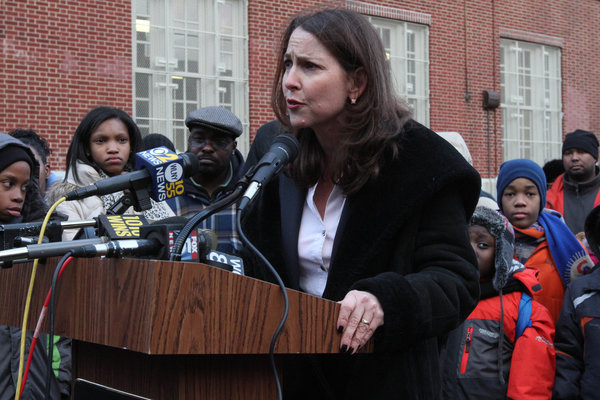
Eva S. Moskowitz, the founder of Success Academy charter schools, was joined by Gov. Andrew M. Cuomo at her rally. Mayor de Blasio has criticized her movement. | Credit Tina Fineberg for The New York Times
Ms. Moskowitz’s schools, which serve 6,700 students, 90 percent of them black or Hispanic, have consistently outscored traditional public schools on state tests. Last year, after new, tougher tests were rolled out, the distinction was striking: 82 percent of Success Academy pupils passed the math exams, compared with 30 percent citywide. They also outperformed the city in reading, 58 percent to 26 percent.
“Everyone’s trying to do a ‘Gotcha; there’s some catch,’ ” she said. “What we’re doing is building schools around two things — critical thinking and the whole child.”
At her schools, the school day is longer, stretching to 4:30 p.m. or later. Teachers regularly host after-school or weekend tutorials and, parents say, give out their cellphone numbers for daily contact.
Inside her classrooms, children sit in blue and orange uniforms, usually with their hands folded, their feet flat on the floor, listening to teachers — most just out of college — barking out orders, sometimes in startling tones. State statistics suggest that the teachers, who are nonunionized, tend to quit their jobs more frequently than in other schools; Ms. Moskowitz disputes the numbers, but wrote to her teachers a couple of years ago complaining about those who had left midyear and telling them, “This is not a ‘gig.’ ”
Her critics say her expansions can feel like hostile takeovers.
Hope Scott, the parent association leader at P.S. 123, in Harlem, said she could not forget a summer day in 2008, when she saw desks and teachers’ property thrown in the hallway as a Success Academy school was “moving in.”
VIDEO|0:54
Credit De Blasio on Eva Moskowitz Long before he was elected mayor, Bill de Blasio made it clear that he had little time for Eva S. Moskowitz, the leader of a charter school network.
“They moved in aggressively,” Ms. Scott said. “And they did not notify us they were coming in here and that they were moving into the classrooms that they wanted to move into.”
Ms. Moskowitz was one of the first charter school operators to branch out into better-off neighborhoods like the Upper West Side and Williamsburg. In such areas, she met significant community opposition, including from Carmen Fariña, now the schools chancellor, when Ms. Moskowitz opened a school in Cobble Hill, Brooklyn.
According to Ms. Moskowitz, she ran into Mr. de Blasio during the mayoral campaign outside that school.
“Welcome to the neighborhood,” Mr. de Blasio said.
“I’ve been in the neighborhood,” Ms. Moskowitz replied.
Other critics note that her schools tend to serve fewer special education students and nonnative English speakers than surrounding neighborhood schools. Chancellor Fariña said on Tuesday that while some charter schools “do great work” in helping children with special needs, or those with limited English proficiency, Ms. Moskowitz “makes it clear these are kids she cannot help, necessarily, because she doesn’t have the resources for them.”
She has also attracted notice for her salary, $475,000, partly paid by donors, and roughly double what the chancellor earns. “The irony of what is going on is, here is a woman who makes quite a substantial living on the ability to create schools by pushing thousands of children out of their school buildings, and now she is upset that someone is pushing back on her,” said Michael Mulgrew, the president of the city teachers’ union.
The mayor’s office noted that while it canceled plans for three Success charter schools last week, it allowed five more to open as planned. It said that it withdrew space from the three not out of animus toward Ms. Moskowitz, but because those schools would have placed elementary school students with high school students or cut programs for students with disabilities.
Ms. Moskowitz saw another motive at play: “I think the problem is that we now have a mayor and a chancellor who don’t seem to want to learn from what we can do,” she said.
Thomas Kaplan, Jesse McKinley and Marc Santora contributed reporting.





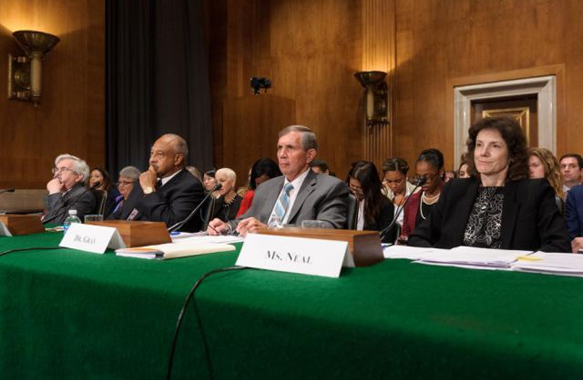
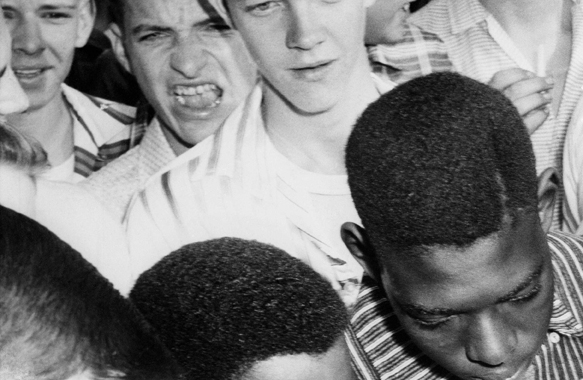
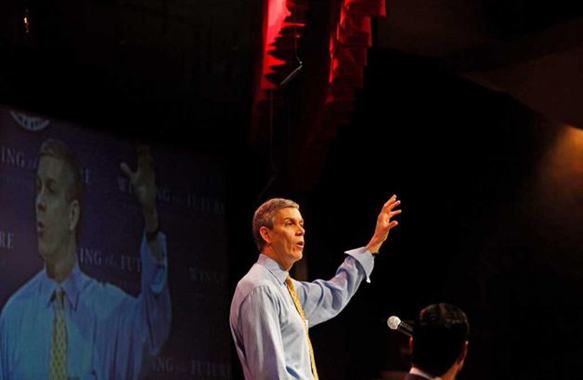
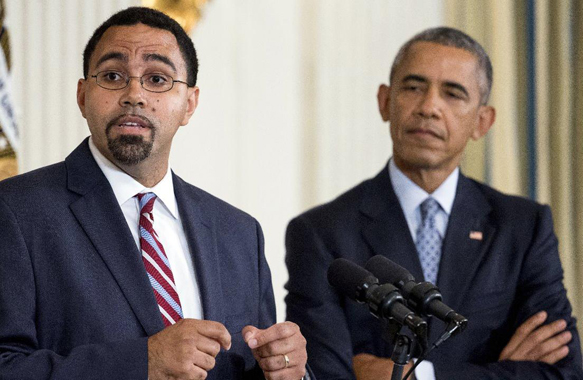
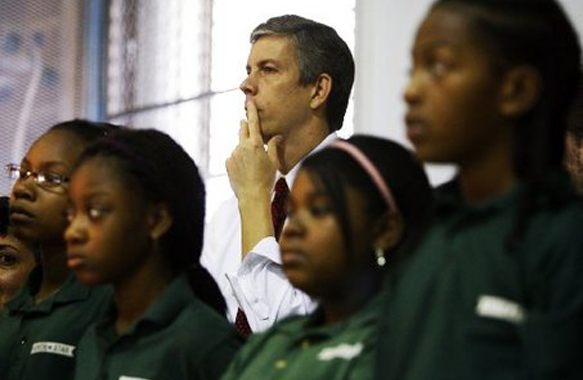

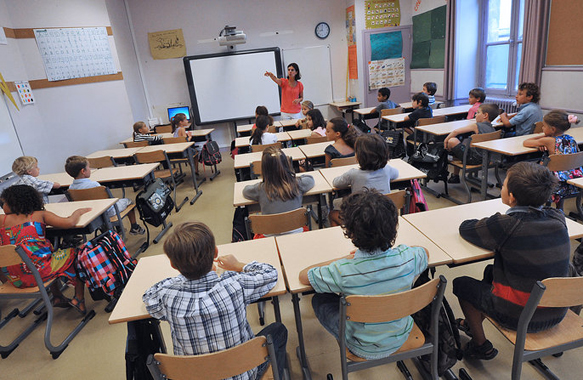
Leave A Comment